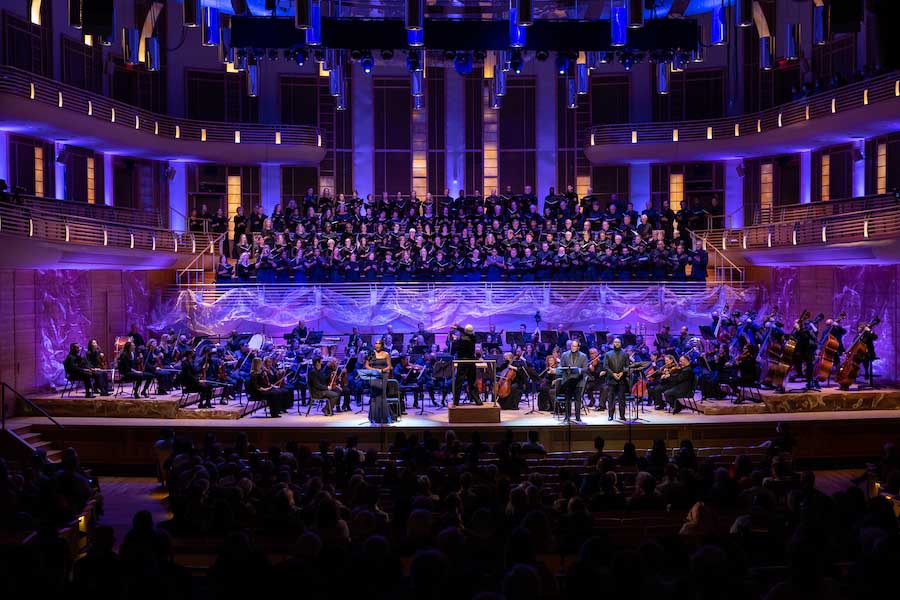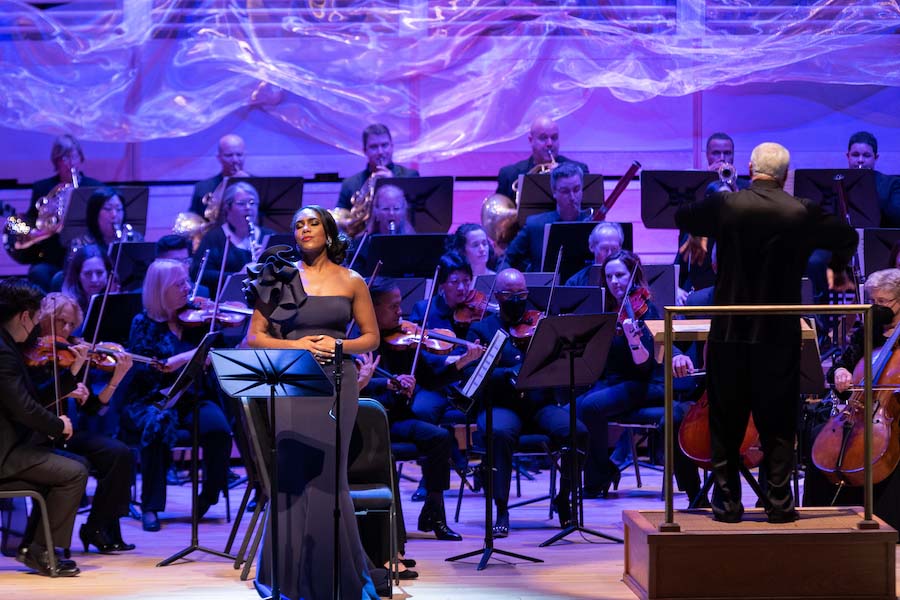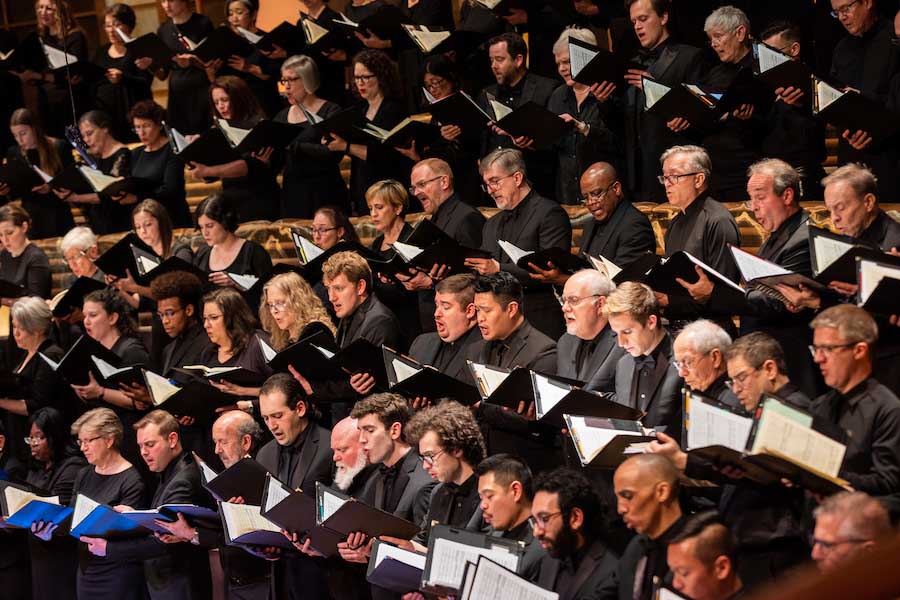“Mama. Mama. Mama. Mama. Mama. Mama. Mama.”
— Words spoken by George Floyd before his death at the hands of police officer Derek Chauvin
“Our suffering connects us.” — James Baldwin
The murder of George Floyd on May 25, 2020, at the hands of a Minneapolis police officer was one of many incidents of Black people being killed by police (or self-appointed folks) that, for a while, seemed to happen every week. A video that was circulated showing Police Officer Derek Chauvin as he knelt on Floyd’s neck for almost nine minutes seemed to be a tipping point that led to protests in many countries condemning police brutality and affirming that Black Lives Matter.

America’s Requiem: A Knee on the Neck is a requiem cantata written in honor of George Floyd. It was given its world premiere on March 26, 2022, at The Music Center at Strathmore by the National Philharmonic Orchestra and Chorale, in partnership with The Washington Chorus and The Howard University Chorale, and was performed again at The Capital One Center on March 28, 2022.
It is a suitably monumental piece that responds to the insult, shock, and brutality of the George Floyd incident while taking to heart and commenting on the 400 years of resistance by people of African heritage to being targeted by the state.

Herbert Martin developed poems in response to the incident and then invited Adolphus Hailstork to compose the music.
There are four segments of the piece: “A Black Mother’s Commandment” (itself consisting of five poems), “Folk Song,” “A Gambler’s Rhyme,” and “Hymn.”
In “A Mother’s Commandment,” a son is instructed on how he is to govern his feelings and behavior when he is in public, unsupervised (and unprotected) by his mother:
When you go downtown
Dress yourself in politeness
Let goodwill be the buttons
On your white shirt for
If you are arrested
Politeness will restrain
The police and it will
Protect you until I can get there.
“Folk Song” uses the familiar spiritual “There’s a Man Going Round Takin’ Names” to equate the “Man” of the song with the impulse that motivated Officer Chauvin to murder with such confidence. The song also consoles George Floyd as he makes his transition into death.
At one point in this requiem, the soloists begin to sing the word Mama. (George Floyd called out “Mama” seven times, and twice he called out “Mama, I love you.”) In changing harmonies and counterpoint, the soloists sang the word repeatedly and gently. While the rest of the piece was well constructed and well sung and laudable, this segment did something different: it provided a container for the trauma of the event so that the audience could bear witness to what happened without being retraumatized in the process.
A requiem is a Christian tradition: a mass for the dead that acknowledges, honors, and calls for rest for a dead person. It is also an acknowledgment of and opportunity to engage in the grief for those still living. It can function as a renewal of the community’s determination:
We shall abide together
And sing a worthy song
For the road is harsh and long
Our feet are tired
But our will is strong
Even as sorrow
Overwhelms our prayers
And we will overcome!
Our will is fortified
It is determined
It is strong
And we
Shall overcome!
It felt good to have the Mozart’s Requiem in D minor — with its cinematically popular Lacrimosa movement — presented on the same bill. Sometimes performing pieces from the western canon can feel like an academic exercise that divorces the original or the shared “spiritual” function of the work from the craft and status involved in creating or listening to it. Presenting both requiems together allowed the audience to transfer the emotions experienced in the George Floyd requiem to Mozart’s work and thus allowed the experiencing of spiritual dimensions of Mozart’s work to be more than an intellectual exercise. We had been warmed up to be ready to hear and receive the Mozart in a way we might not have been otherwise.

The voices of the combined choruses were blended and balanced to achieve a sensuous and enjoyable sound. There were no scratchy places where vocal sections or individual voices competed with each other. And they were smoothly and immediately responsive to the conductor, without being stiff or panicked. The sound of the chorus was a reliable and comfortable holding place for the audience’s attention. Eugene Rogers was the chorus master.
The soloists were all impressive and well received by the audience. Janai Brugger’s quicksilver soprano was exhilarating in the Mozart. J’Nai Bridges (mezzo-soprano), whom I had just seen in Written in Stone at The Kennedy Center, brought drama and gravitas to the evening. Norman Shankle (tenor) and Kenneth Overton (baritone) were both forceful without being bombastic.
Running Time: Approximately two and a half hours with a 20-minute intermission
America’s Requiem: A Knee on the Neck premiered on March 26, 2022, at The Music Center at Strathmore and was performed again on March 28, 2022, at Capital One Hall, in Tysons, VA.
The mobile program for America’s Requiem: A Knee on the Neck is online here.




